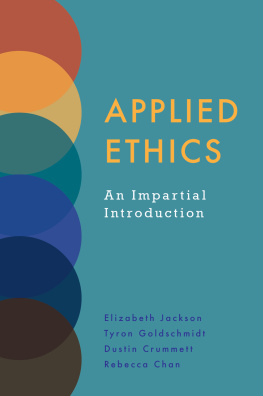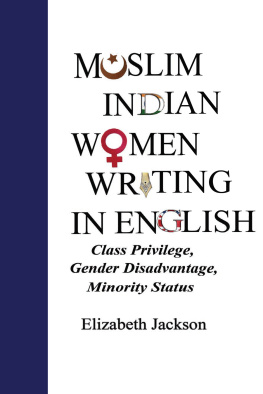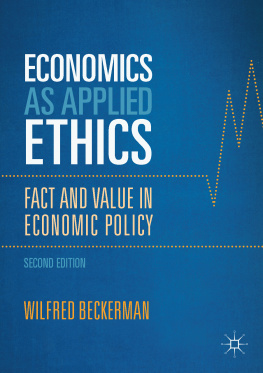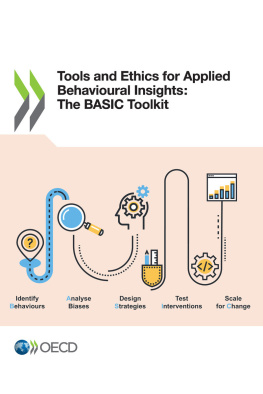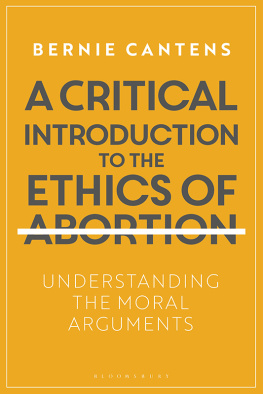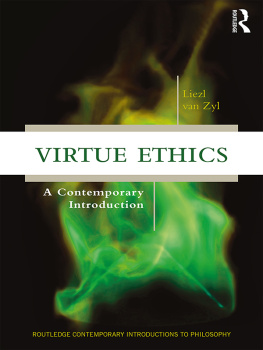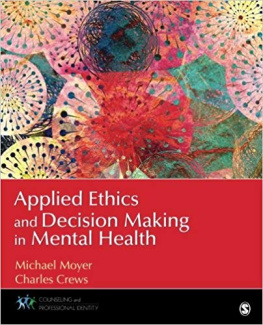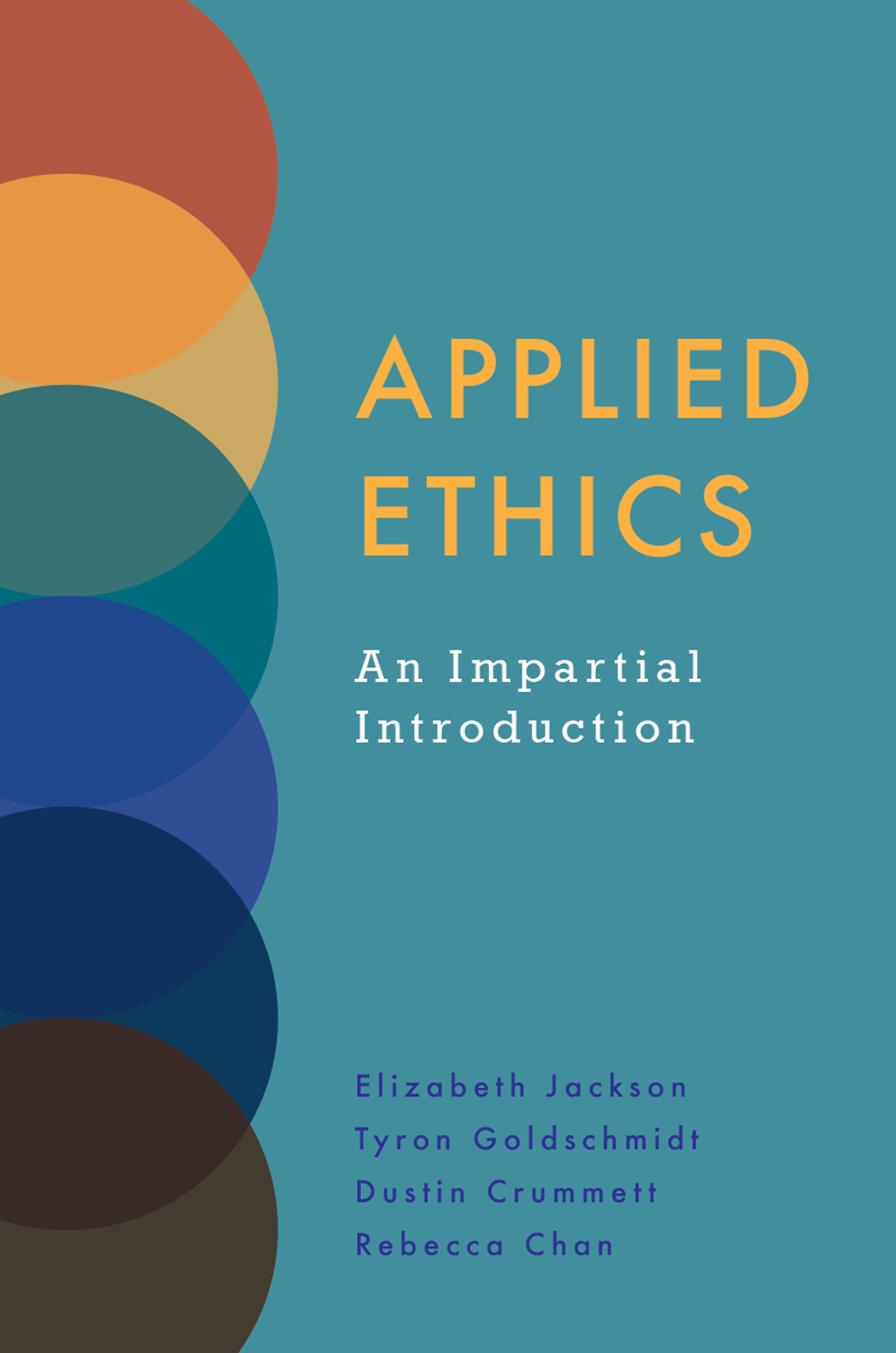Contents
Applied Ethics
An Impartial Introduction
Applied Ethics
An Impartial Introduction
Elizabeth Jackson
Tyron Goldschmidt
Dustin Crummett
Rebecca Chan
Hackett Publishing Company, Inc.
Indianapolis/Cambridge
Copyright 2021 by Hackett Publishing Company, Inc.
All rights reserved
Printed in the United States of America
24 23 22 21 1 2 3 4 5 6 7
For further information, please address
Hackett Publishing Company, Inc.
P.O. Box 44937
Indianapolis, Indiana 46244-0937
www.hackettpublishing.com
Cover and interior design by E. L. Wilson
Composition by Aptara, Inc.
Cataloging-in-Publication data can be accessed via the Library of Congress Online Catalog.
Library of Congress Control Number: 2021936826
ISBN-13: 978-1-64792-011-1 (pbk.)
ISBN-13: 978-1-64792-014-2 (PDF ebook)
Epub3 ISBN: 978-1-64792-063-0
Kindle ISBN: 978-1-64792-064-7
Anthony Weston and Stephen Bloch-Schulman, Thinking Through Questions: A Concise Invitation to Critical, Expansive, and Philosophical Inquiry .
David R. Morrow and Anthony Weston, A Workbook for Arguments: A Complete Course in Critical Thinking , Third Edition.
Anthony Weston, A Rulebook for Arguments , Fifth Edition.
David R. Morrow, Giving Reasons: An Extremely Short Introduction to Critical Thinking.
Sharon Bailin and Mark Battersby, Reason in the Balance: An Inquiry Approach to Critical Thinking , Second Edition.
Contents
The page numbers in curly braces {} correspond to the print edition of this title.
Acknowledgments
Even though our names appear in orderreverse alphabetical!on the cover, the authors each contributed equally to the book. Each of us focused a bit more on certain chapters, but all the chapters are the work of multiple hands. Still, each of us blames the others entirely for any infelicities or blunders.
We all thank Deborah Wilkes of Hackett Publishing for her encouragement, advice and patience.
Liz and Ty thank the Eudaimonia Institute at Wake Forest University for a grant to work on this project over the summer of 2018 and to purchase many books.
Dustin received funding for this project from the European Research Council (ERC) under the European Unions Horizon 2020 research and innovation programme (grant agreement No. 786762).
Rebecca thanks David (aka #1) with whom she participated in a reading group on punishment. Though all of his reading was done a priori , his lived example modeled the real value of applied ethics.
Dustin also thanks Alex Rausch. Alex did not contribute to this book in any way, but did beat Dustin in an arm wrestling contestthe stakes being that the loser had to thank the winner in the acknowledgments of a publication.
{11}
{57}
{113}
{163}
{211}
{267}
{1}
1. Introduction to the Introduction
Welcome to your textbook on applied ethics. We, the coauthors, hope youll enjoy it. Perhaps you have some questions (or want to humor those who do) before we dive in, such as:
1.What exactly is applied ethics?
2.How should I navigate this book?
3.Besides the applied ethics stuff, will I get anything else out of this book?
Weve thought about these questions, too, and want to address them right now in this Introduction. So, without further ado, lets address what applied ethics is, how you should navigate the features of this textbook, and the transferable, argumentative skills youre going to learn.
2. What Is Applied Ethics?
2.1. Applied Ethics
Ethics is typically divided into three areas:
1. Applied ethics tries to give answers to the practical moral questions we ask in everyday life. For example: Is abortion wrong ? Is polluting the environment permissible? Do animals have rights?
2. Normative ethics is more abstract than applied ethics. Normative ethics tries to construct theories that account for the rightness or wrongness of certain actions, motives, and/or character traits. For example: What makes both murder and stealing wrong? Is there a common ingredient to their wrongness? Can we tell a simple story about why they are both wrong?
3. Metaethics is about even more abstract questions than is normative ethics. Metaethics tries to answer fundamental questions about the nature of morality. For example: What are goodness and badness? Are right and wrong real and objective, are they {2} based on emotions , or are they entirely made up? Are we capable of knowing what is good and bad? If so, how?
This book is devoted to applied ethics . Applied ethics is also sometimes called practical ethics or contemporary moral problems . We focus on six popular and controversial topics:
1. Abortion: Is abortion wrong? Is it permissible? Do fetuses have a right to life? Do women have a right to choose?
2. Animals: What obligations do we have to non-human animals? Does their pain and suffering matter morally? Is it permissible to use them for their labor, body parts, and by-products if they are treated well before they are killed? Or do animals have their own lives, desires, and aims that require our respect?
3. The environment: What obligations do we have to preserve the environment? Does the natural world have value independent of its usefulness to us? Or is it valuable solely in virtue of its use to human beings? What obligations do we have to future generations who depend on functioning ecosystems?
4. Poverty: Do we have obligations to help the poor? Are we bad people if we dont help those who are less fortunate or is helping the poor just moral extra credit? Can giving to charity ever be wrong?
5. Punishment: What justifies punishment? Could it turn out that punishment is impermissible? Even if punishment is permissible in theory, could it turn out that the way we punish people is not permissible?
6. Disability: What is a disability? Is disability just a different way of being, or does having a disability make someone worse off?
Each chapter is devoted to a famous or influential argument on one of these six topics. The six sections of the book (one for each topic) can be read in any order and independently. Because learning about argumentation builds similarly to learning about math, we recommend that the chapters be read in order; but well always flag argumentative points and provide reference back to the initial introduction of those points.
The chapters can be read independently, too, but reading all of the chapters of a section in order is preferableespecially for the sake of balance. The chapters can also be read independently of the original essays covered. For example, Chapters 3 and 4 can be understood without ever looking over the corresponding essays by Marquis and Thomson. But we recommend that you, the student, also read the original essays.
{3} 2.2. Connections to Normative Theories
While the focus of this book is the moral challenges listed above, we also introduce some of the most influential normative moral theories along the way. (So we introduce some of the basics of normative ethics.) A normative moral theory , or moral theory for short, tries to get at the most basic or fundamental reason certain actions, attitudes, or character traits are good, bad, right, or wrong. Philosophers are kind of like little children who like to play the why gameexcept philosophers are more annoying and not as cute.
Here is an example of a philosophical why game:
Sue: | Lying is wrong! |
Philosopher: | Why is lying wrong? |

